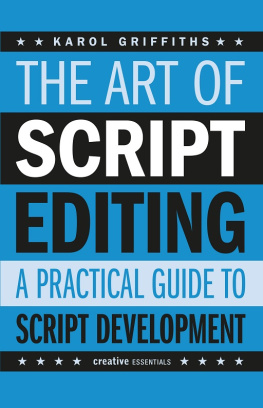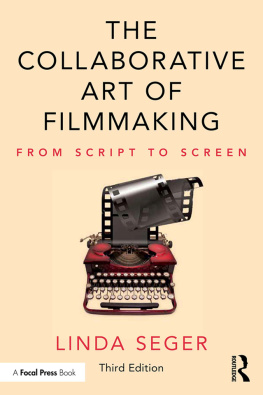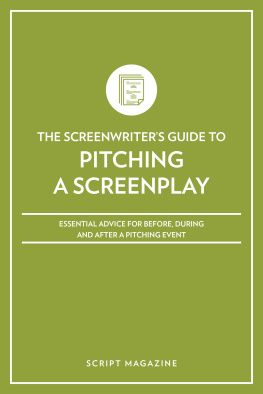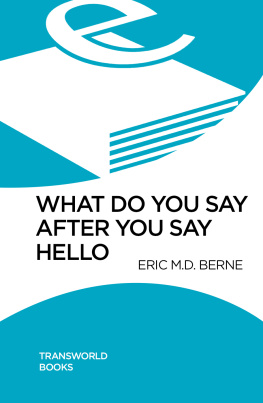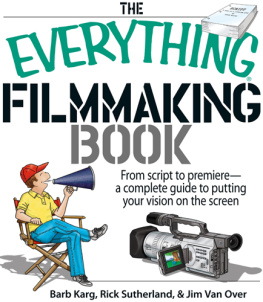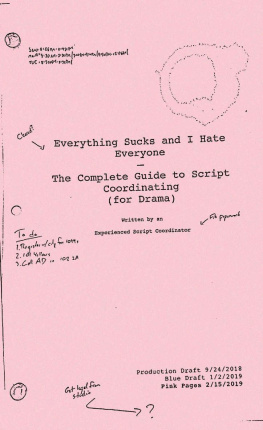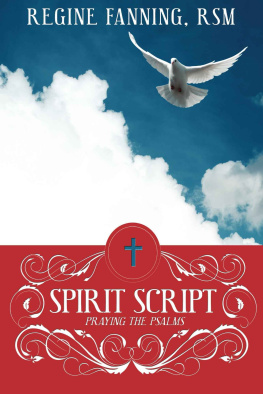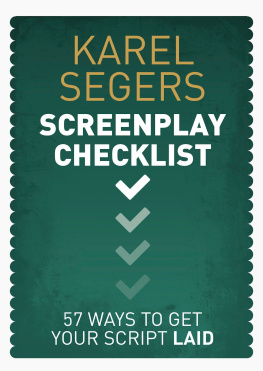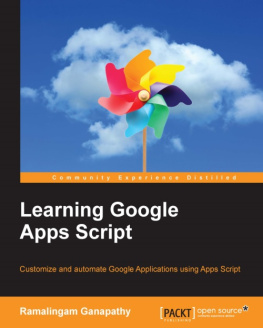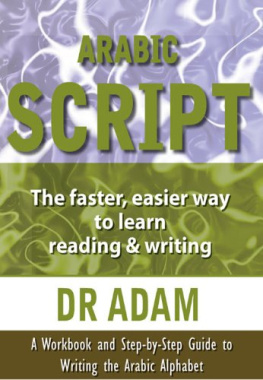A clear, insightful and sensitive look at the work of script editors and screen writers - Hossein Amini: writer of Drive and writer and director of The Two Faces of January
The Art of Script Editing provides a comprehensive overview of this vital role, examining its responsibilities and functions during all stages of the development process, both in film and television. Detailing the nuts and bolts of the job, it looks at whats required and expected, how script editors assess a script, their approach to working with writers and producers, and their input during rewrites and pre-production, and up to a projects completion. It also examines the ways in which writers and producers can benefit from working with a professional script editor as they seek to refine and communicate their vision.
The Art of Script Editing; A Practical Guide is a valuable resource for anyone developing a script no matter where they are in the process, for writers and producers interested in expanding their understanding of how a script is advanced, and for those pursuing a career in script development.

Karol Griffiths has been a successful script supervisor, script editor and development associate for over 20 years. She has worked with companies such as Warner Brothers, Universal, Disney, Paramount and Fox Studios, as well as Amblin Entertainment, The Coen Brothers, Working Title, Rajski Productions, Interscope Pictures, Sandollar Productions, Revelations Entertainment, BBC, ITV and La Plante Productions.
Karol currently runs her own freelance consultancy and is passionate about working with writers in all media formats. She is a reader for the BBC Writers Room and The Literary Consultancy in London, and has a Master of Fine Arts Degree from Yale School of Drama and a Script Development Diploma from NFTS.
creative ESSENTIALS
KAROL GRIFFITHS
THE ART OF SCRIPT EDITING
A PRACTICAL GUIDE
creative ESSENTIALS
In loving memory of my mother and father
ACKNOWLEDGEMENTS
In preparing this book, I sought out the support and expertise of some very talented and accomplished industry professionals; I am extremely grateful to Hossein Amini, Paul Mayhew-Archer, John August, Hayley McKenzie, Robyn Slovo, Ludo Smolski and Paul Matthew Thompson for generously sharing their treasured insights and valuable time, and helping me to investigate the joys and challenges of script editing and story development.
Additional thanks to...
Rebecca Swift for her kind support, guidance and friendship.
Lucy Scher for her valuable instruction during my transition to the United Kingdom.
Sven Angelbauer, Lisa Barr, Kathy Bell, Tarryn Campbell-Gillies, Martin Casella, Darin Elliott, Jean Kaye, Michael Sierton and Nancy Smalling for being such wonderful friends and giving me the support and confidence to get through this crazy year.
My profound thanks go to Hannah Patterson and Ion Mills for inviting me to write this book, and for supporting me along the way; and to the dedicated team at Kamera Books, who have been fantastic: Claire Watts, Anne Hudson, Elsa Mathern, Jayne Lewis and Steven Mair.
Love and gratitude to my family: Pamela Merrick, Laurel Goldman, the Viriet family, the Siegel clan, Sue Gurley, Jane Goldberg, Lucy and Ollie, and ESPECIALLY to John you are the most amazing husband in the world thanks for being mine.
CONTENTS
INTRODUCTION
A CAREER IN SCRIPT DEVELOPMENT
Working in script development is a mercurial existence to say the least a roller coaster ride with endless twists and turns. The highs are exciting, engaging and gratifying and the lows are equally potent, often filled with disappointment, sleepless nights and utter frustration. BUT when the process succeeds, it is undoubtedly one of the most satisfying and privileged roles in the entertainment industry.
The aim of this book is to demystify the process: to offer insight into how to find, nurture and foster screenwriters, to explain how script editors and development teams work with writers, producers and executives within the system, and to give writers an understanding of how they can most effectively work with a script editor and within a development team.
For writers, the development process can quickly become a confusing labyrinth. It might not seem like it, but screenwriting is a collaborative job, and although writers spend much of their time working alone, writing for film and television is ultimately all about working with others. The initial idea and first draft are just the beginning, because from that point onwards, everyone will have an opinion on how to develop the story. From inception up until the final polish, even into post-production and every step along the way, there will be outside input, comments, ideas and conflicting notes to navigate through. Just about everyone involved in the process will have an opinion or an agenda even well-meaning friends and family will eagerly offer up comments. So, its no wonder that writers frequently become overwhelmed.
Filmmaking is an expensive and pressured business and decision makers need to be secure in the projects and scripts that they are responsible for selecting. So, its understandable that everyone has an opinion, because there is a lot at stake. From the entry-level readers on up until the executive producer its their reputations, careers and possibly even money on the line. Even a low-budget, indie film is costly, time-consuming and takes a great deal of hard work to produce so everyone wants to get it right.
Readers and development teams are inundated with piles of scripts. Their job is to filter out the unworthy, and to find a precious diamond in the rough. They worry constantly, desperate not to reject what might be a successful blockbuster and equally concerned about putting through a disappointing and expensive failure.
Agents are concerned with getting their writers work, but also with earning commissions. They often use their hard-earned insider information to influence writers into reworking ideas to fit a trend or brief hoping to provide the type of script that producers say they are looking for.
At the producer level, there are other concerns: practicality, financial ramifications and market requirements. Again, these often lead to more notes for the writer. Studio executives and commissioners will have even more thoughts, such as attaching talent, and needing a balanced slate of projects. Maybe they only produce one drama feature a year, but are willing to consider a script if its tailored for specific talent they have a relationship with. The lead character may have been written as a 20-something ingnue, but the actor they have in mind is middle-aged and so, the writer will once again have to consider making changes and possibly implement extensive revisions in the hopes of getting the film made.
Even when the script gets a green light and makes it into production, the development and collaboration doesnt end. Elements continually evolve, constantly shift and change. At that juncture, creative talent has influence and yet more questions, concerns and rewrites need to be addressed and are sometimes demanded.
Consequently, it can be a long and difficult journey getting a script ready for production and hard for a writer to know which direction to take while also trying to maintain the integrity of their vision along the way.
So what is a script editors role during all this?
I am asked this question regularly, and often even by people who work in the industry. The answer is quite simple, although the job is far from it.
The role of a script editor is to help the writer successfully
tell their story in a way that connects with their intended audience.
Next page
